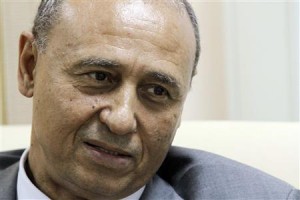Special to WorldTribune.com
CAIRO — Libya has reported the destruction of its weapons of mass destruction stockpile.
The Tripoli government said all of Libya’s chemical weapons arsenal was destroyed with NATO assistance. Officials said the demolition was overseen by the Organization for the Prohibition of Chemical Weapons, which embarked on a similar mission in Syria.

“Libya has become totally free of usable chemical weapons that might present a potential threat to the security of local communities, the environment and neighboring areas,” Libyan Foreign Minister Mohammed Abdel Aziz said.
In a ceremony in Tripoli on Feb. 4, Abdul Aziz said the final stage in
the international mission was the destruction of mustard gas in artillery
shells on Jan. 26. The minister said all of the WMD assets stemmed from the
previous regime of Col. Moammar Gadhafi.
“This achievement would not have been possible in such a short time, without concerted efforts within an international partnership, or without the logistical support and the technical assistance from Canada, Germany and the USA, which provided the opportunity to use very advanced, safe and reliable technology,” Abdel Aziz said.
In 2004, Libya agreed to a U.S.-led operation to destroy CW as well as
medium-range ballistic missiles. The United States reported finding North
Korean-origin missiles with a range of up to 800 kilometers.
Officials said the overthrow of Gadhafi accelerated the OPCW mission to
destroy Libya’s declared WMD facilities, which included 25 tons of mustard
agent as well as several thousand shells designed for CW. They acknowledged,
however, that large areas of Libya controlled by militias remain
inaccessible to international inspectors.
“The destruction of these munitions was a major undertaking in arduous,
technically challenging circumstances, as we saw first-hand earlier today at
the remote Ruwagha Chemical Weapon Destruction Facility,” OPCW
director-general Ahmed Uzumcu said. “From start to finish, meeting these
challenges was the product of close cooperation between Libya, the OPCW
Technical Secretariat and other states parties.”

You must be logged in to post a comment Login